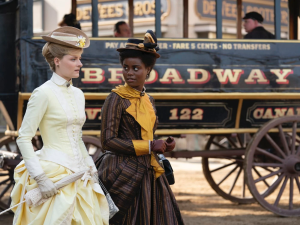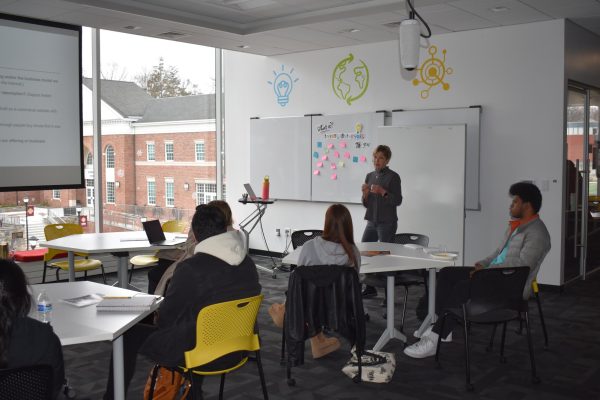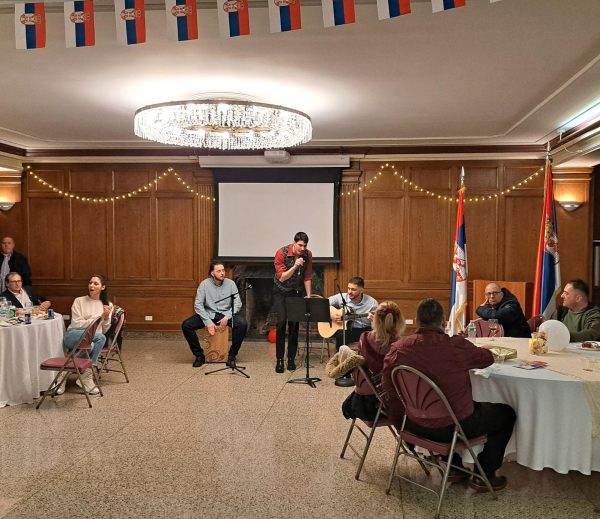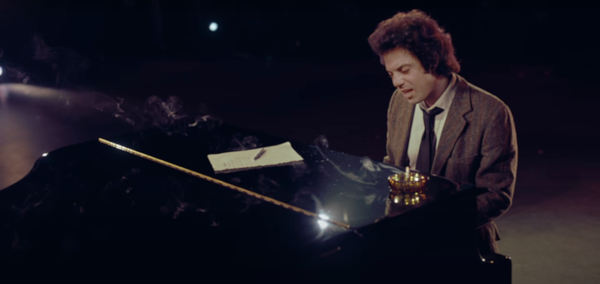‘Mecca Tales’ performance addresses important issues
November 14, 2018
One of the many educational and moving events making up Iona’s Week of the Peacemaker was the stage reading of “The Mecca Tales” on Nov. 7 in the Murphy Auditorium. “The Mecca Tales” is the story of five Muslim women making the pilgrimage to Mecca known as the Hajj.
Iona students fervently watched the cast put on a passionate, inspirational performance that left them considering a number of important questions. “The Mecca Tales” was directed by critically acclaimed playwright Rohina Malik.
The reading began with the group discovering they were stuck in Arafat, a plain southwest of Mecca, because the Saudi government refused access for more travelers for the day. Grace, the group’s leader, told the four women she was guiding that they would have to worship on the road until they could continue traveling. Bina, the sassy wife of a rich doctor, demanded a refund from Grace, who was paid to be the travel guide.
This led to an argument among all five of the women. Grace blamed the group’s inability to enter Saudi on the four women because they spent all morning getting on the bus. Meanwhile, Bina insisted that she get her money back while Grace refused. Maya, a single mother, criticized Bina for wanting to leave so easily after she had to sacrifice so much to make the Hajj.
Next, the women questioned one another’s intentions in making the Hajj. Each woman began to reveal her unique and personal reasons for making the pilgrimage. Alma revealed she was struggling to love her newborn daughter because she was born with a deformity, and feels as if she has sinned because she’s never kissed her. Her reason for making the journey stems from the desire to find herself again and become a better mother to her daughter.
Malika, a young medical student, reveals she does not want to be a doctor but is fulfilling her father’s wishes. Her journey is a chance for her to truly consider what it is she wants to do with her life. Maya shares the story of losing her husband and having to raise her child as a single mother. Bina reveals that she is having marital troubles and overdosed on prescription drugs. Her journey is an opportunity to find inner peace and accept her marital circumstances.
Grace revealed her intentions for making the Hajj every year. As a travel guide, she claims that she makes the Hajj with the intention of guiding others and making their experience easier, though she later reveals that years ago she made the pilgrimage with her son, Adam, who died on the journey. She travels to Mecca every year to visit his grave.
As the women discovered their truths and explored redemption through their religious faith, they became closer. The show began with arguing and harmful words, yet ended with love, awareness and understanding.
Following the performance was a discussion between the audience, the cast and the director. A number of important issues on immigration and religion were discussed, as were questions regarding the structure of the production.
“The Mecca Tales” was a powerful performance that conveyed encouraging, broadening ideas. As Grace said, “There is the life we plan and the life we actually have,” reminding the audience that life is full of unexpected experiences that we must learn from to become stronger.












